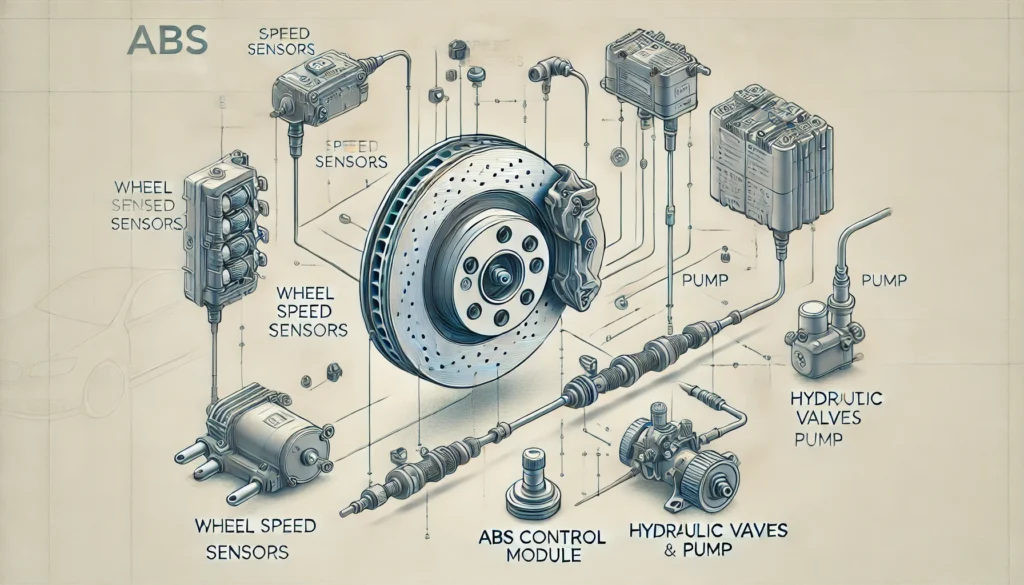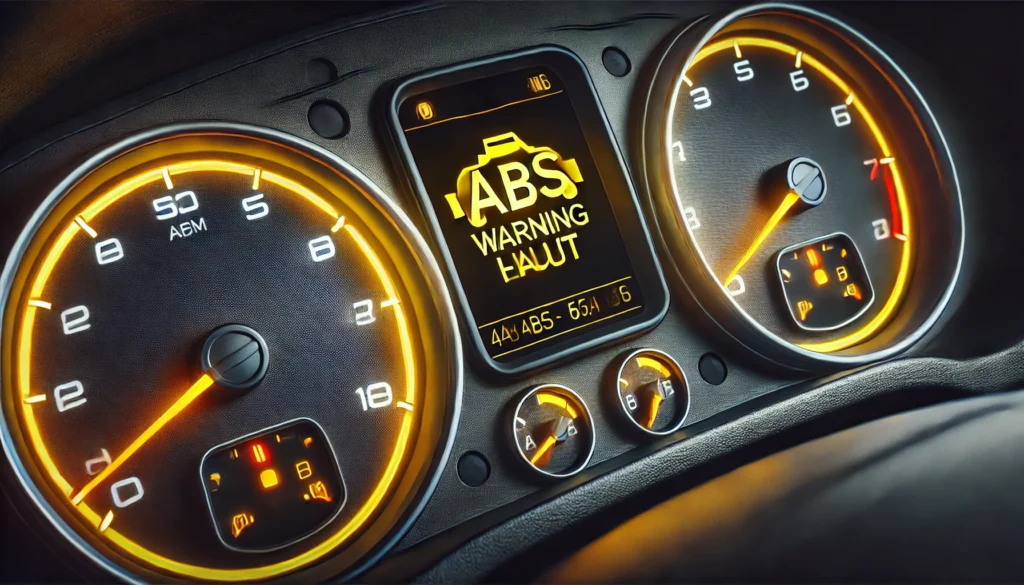The Anti-lock Braking System (ABS) is an essential safety feature in modern vehicles, designed to prevent the wheels from locking up during braking and maintaining steering control. When the ABS system malfunctions, indicated by the ABS warning light on the dashboard, it raises several concerns, including whether it can affect fuel consumption. Understanding the relationship between an ABS fault and fuel efficiency is crucial for vehicle maintenance and performance.
Understanding ABS and Its Function
The ABS system consists of several key components:
- Wheel Speed Sensors: Monitor the speed of each wheel.
- ABS Control Module: Processes data from the wheel speed sensors and controls the hydraulic valves.
- Hydraulic Valves: Regulate brake pressure to prevent wheel lockup.
- Pump: Restores pressure to the hydraulic brakes after the valves release it.

Impact of ABS Fault on Fuel Consumption
- Direct Impact on Fuel Efficiency:
- Explanation: The ABS system itself does not directly affect fuel consumption. Its primary function is to manage braking performance, not to control or influence engine efficiency or fuel use.
- Scenario: A malfunctioning ABS will primarily affect braking and safety, but it does not directly cause the engine to use more fuel.
- Indirect Impact Through Driving Behavior:
- Explanation: An ABS fault can indirectly influence driving habits, which can affect fuel consumption. Drivers may adjust their driving style, such as braking more cautiously or accelerating differently, which can impact fuel efficiency.
- Scenario: If a driver becomes more cautious due to an ABS warning light, they might brake and accelerate more gradually, potentially improving fuel economy. Conversely, if they frequently check the brakes due to concern, it might slightly increase fuel use.

- Associated Issues:
- Explanation: In some cases, ABS faults may coexist with other vehicle issues that can impact fuel consumption, such as problems with the wheel speed sensors affecting the overall performance.
- Scenario: A vehicle with multiple faults, including an ABS issue, might experience reduced performance and increased fuel consumption if other engine-related issues are present.
Steps to Address an ABS Fault
- Diagnose the Issue:
- Steps: Use an OBD-II scanner to read the error codes related to the ABS system. These codes help identify the specific problem, such as a faulty sensor or wiring issue.
- Inspect ABS Components:
- Steps: Check the wheel speed sensors, wiring, and ABS control module for any signs of damage or dirt. Clean or replace faulty components as necessary.
- Seek Professional Help:
- Steps: If you are unable to diagnose or repair the ABS fault yourself, consult a certified mechanic. Professional diagnosis and repair ensure that the ABS system is restored to proper working order.
Importance of Regular Maintenance
- Enhanced Safety:
- Explanation: Regular maintenance of the ABS system ensures that it functions correctly, enhancing overall vehicle safety.
- Steps: Regularly inspect and maintain the ABS components to prevent faults and ensure optimal performance.
- Improved Fuel Efficiency:
- Explanation: Maintaining the ABS system and addressing any faults promptly can indirectly contribute to more consistent driving behavior and potentially better fuel efficiency.
- Steps: Address any warning lights and ensure all vehicle systems are functioning correctly.
Conclusion
While an ABS fault does not directly increase fuel consumption, it can indirectly affect driving behavior, which may influence fuel efficiency. Addressing ABS faults promptly is crucial for maintaining vehicle safety and optimal performance. Regular maintenance and professional inspections ensure that the ABS system functions correctly, helping to prevent any indirect impacts on fuel consumption.